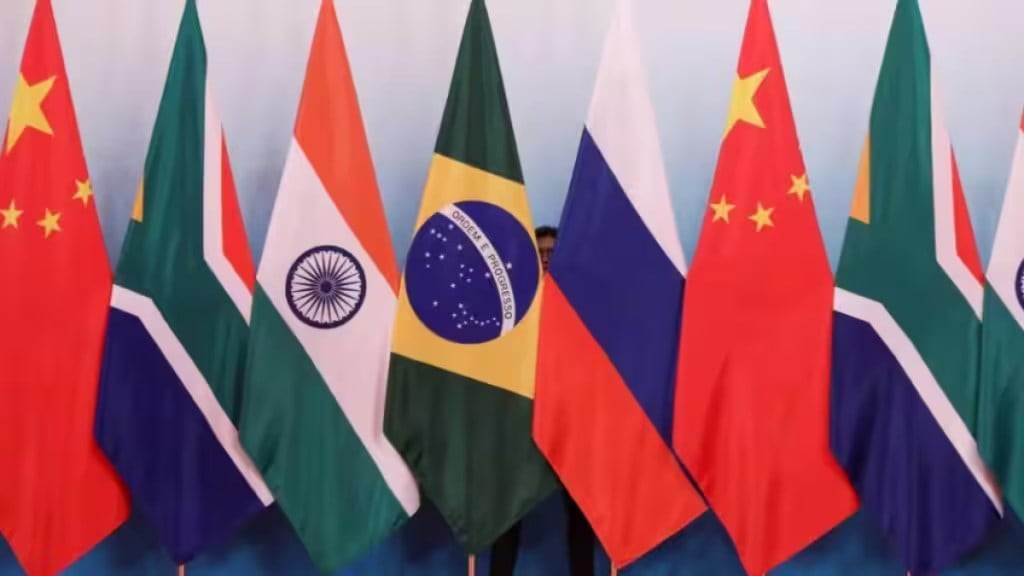By Dr Aparaajita Pandey
The acronym BRICS is set to take a new form soon as more countries are poised to join the group. BRICS certainly seems to be having its moment in the spotlight as it has grown from the need and existence of the multilateral forum being questioned to it being touted as the largest and most probably the only alternative to established systems of global politics and economics that often have the proclivity to tilt towards the west. BRICS has covered the distance from being a group of emerging economies to being aspirational for countries of the global south.
China and India are home to the two of the largest and fastest growing economies as well as the largest percentage of population. The demographic dividend is in favour of India and one can see it being translated in sectors of IT, tech, and entrepreneurship to name a few. The establishment of the New Development Bank played a crucial role in making it a force to reckon with and attracting other nations towards the group.
The next BRCIS summit to be held in Kazan hosted by Russia might see Argentina, Egypt, Ethiopia, Iran, Saudi Arabia, and UAE being added to the bloc. The addition of these new countries would certainly make BRICS a singular definitive representative of the global south. It would also represent a majority of the world’s population, skilled labour, growing economies, and in some sectors wealth. While it seems like a welcome addition in the moment, for long the other members of the group were opposed to this idea of the Chinese to invite more states to be a part of BRICS. There was a fear that more members might lead to the dilution of the principles of the BRICS.
While the status of those fears is unclear, the greater apprehension now is that the addition of the new members would make BRICS a pro – China bloc instead of one that represents the global south. The addition of the new countries like Saudi Arabia, Egypt, and UAE would most definitely play a role in the US- China power dynamics at a geopolitical level. It would also shift the axis within BRICS potentially making it a bloc where China would always seem to have the majority, given its relationship with the new invited members. The growing presence of China in the West Asian region is reflected in the choice of the new members. However, the glaring lack of members from the rest of Africa where also China has a pronounced presence is noticeable. When one adds the element of the significant inroads that Russia has made in the Sahel region of Africa, one would assume greater representation from Africa.
The greater game of US – China power dynamics would be overshadowing the growth of BRICS to an extent; with the addition of Iran to the group the element of Russia – Ukraine conflict would also be added to the complexities. Iran is supplying drones to Russia which is not unknown to the US and Europe. BRICS was originally made up of five nations out of which three reiterated their non – aligned status at every given opportunity. India, South Africa, and Brazil maintained that BRICS was a bloc focused on the growth of emerging economies. The addition of these nations and their relationships with China and Russia, juxtaposed against the Russia- Ukraine war as well as the US – China dynamics, certainly paints BRICS as an anti – west bloc. This growing perception has the potential for becoming tricky for India in the future since India is in several groupings with the US; QUAD and I2U2 to name a few. With time it would become clear as to how these additions have progressed, there are scholars who believe that these additions would make no difference whatsoever and should not be seen as momentous occasions. Nonetheless, the addition of Saudi Arabia and Iran to the same bloc has not gone unnoticed. The two nations would now be forced to work together, and it would be interesting to see how that is translated into the power dynamics and politics of West Asia, especially when both of these countries have a different partner within the BRICS.
BRICS and the associations of its members within the bloc and with nations outside would have to be assessed carefully as there are numerous intermingling layers to them which seem to be getting more complex with each passing day.
Author is an independent political analyst with a PhD from the School of International Studies, Jawaharlal Nehru University.
Disclaimer: Views expressed are personal and do not reflect the official position or policy of Financial Express Online. Reproducing this content without permission is prohibited.

